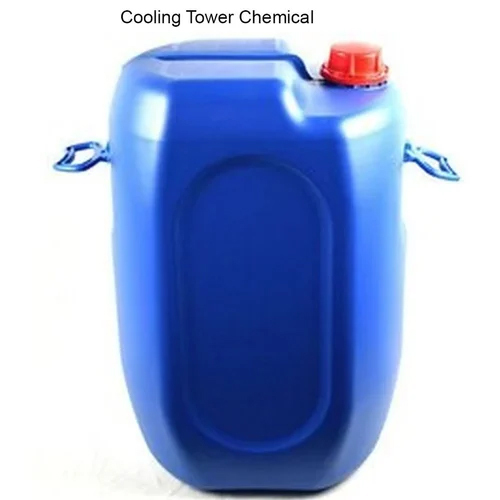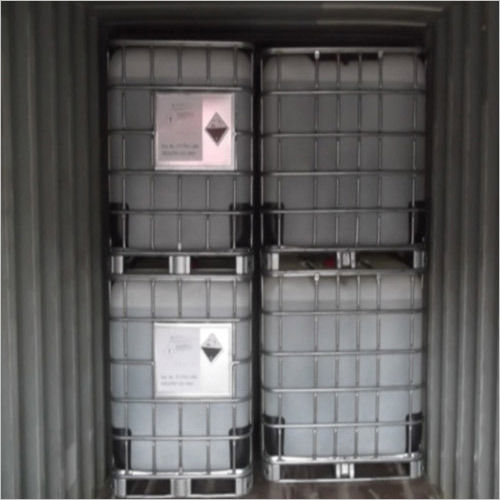Cooling Tower Chemical
135 INR/Kilograms
Product Details:
- CAS No 52-51-7
- Chemical Name Other
- Physical Form Liquid
- Grade Industrial Grade
- Purity(%) 98%
- Type Other
- Application Recycling Water Treatment
- Click to View more
X
Cooling Tower Chemical Price And Quantity
- 100 Kilograms
- 135 INR/Kilograms
Cooling Tower Chemical Product Specifications
- Other
- Other
- 52-51-7
- Industrial Grade
- 98%
- Liquid
- Recycling Water Treatment
Cooling Tower Chemical Trade Information
- Gujarat
- Cash Advance (CA) Cash in Advance (CID) Cheque
- 100000 Kilograms Per Month
- 1 Days
- Yes
- Contact us for information regarding our sample policy
- 50 Kg Carbo Packing
- Australia Asia North America South America Eastern Europe Central America Western Europe Middle East Africa
- North India East India Karnataka Kerala Bihar Chandigarh South India Meghalaya Manipur Mizoram Daman and Diu Goa Sikkim Central India Gujarat All India West India Lakshadweep Andhra Pradesh Telangana Jharkhand Odisha Assam Dadra and Nagar Haveli Andaman and Nicobar Islands Arunachal Pradesh Madhya Pradesh Rajasthan Tripura Pondicherry Uttar Pradesh Punjab Delhi Chhattisgarh Haryana Himachal Pradesh Jammu and Kashmir Maharashtra Nagaland Tamil Nadu Uttarakhand West Bengal
- msme certified and iso 9001:2015 certified
Product Description
The application of cooling tower chemicals depends on their composition. As a scaling inhibitor, this type of chemical is effective in avoiding the deposition of soluble and insoluble minerals inside the cooling tower. Scaling can lead to the hardness of water. Ph adjuster is also a type of cooling tower chemical that prevents corrosion formation of internal parts of the tower by adjusting the ph value of the chilled water. Offered chemical is also accessible in biocide and algaecide forms to avoid microbial growth in stored water of the cooling tower. Defoamer chemical treats suspended solid particles and the alkaline content of cooling tower water.
Cooling Tower Chemical Properties:
1. Cooling Tower Chemicals are intended to stop the growth of scale deposits and shield the cooling system from corrosion.
2. They contain inhibitors that assist preserve the cooling tower's effectiveness by preventing the deposition of mineral scale on heat transmission surfaces.
3. The chemicals used in cooling towers offer the perfect conditions for the development of bacteria, algae, and fungi.
4. To limit microbial development and avoid the development of biofilm, which can cause blockage and decreased heat transfer efficiency, biocidal chemicals are applied.
5. To avoid corrosion and scaling, the pH of the cooling tower water is extremely important.
6. Dispersants, which aid in the breakdown and dispersion of any suspended particles or particulate matter in the water, may be included in cooling tower chemicals.
Cooling Tower Chemical Features:
1. Cooling Tower Chemicals are intended to stop the buildup of deposits and scale on heat exchange surfaces.
2. The pipes, valves, and heat exchangers that are part of the cooling tower system are all protected from corrosion by these chemicals.
3. They include corrosion inhibitors that create a shielding coating on metal surfaces to stop rust and increase the equipment's lifespan.
4. These substances aid in limiting the development of microbes including fungi, algae, and bacteria.
5. pH adjusters or buffers are frequently used in cooling tower chemicals to control and maintain the correct pH range, which is normally between 7.5 and 9.0.
6. Dispersants and antifoulants may be present in these chemicals to stop the buildup of suspended particles, silt, and organic matter in the cooling water.
Frequently Asked Questions:
1. Do cooling tower chemicals protect against corrosion?
Ans: Yes, cooling tower chemicals are formulated with corrosion inhibitors that create a protective film on metal surfaces, preventing rust and corrosion, thus protecting against corrosion in cooling tower systems.
2. Are cooling tower chemicals environmentally friendly?
Ans: Many cooling tower chemicals are formulated to be environmentally friendly, with reduced toxicity and biodegradable properties, ensuring safe operation and minimizing the impact on the environment.
3. How do cooling tower chemicals promote water conservation?
Ans: Cooling tower chemicals can promote water conservation by enhancing the efficiency of the cooling system, reducing water consumption through improved heat transfer, minimizing blowdown requirements, and maximizing the cycles of concentration.
4. How can cooling tower chemicals be monitored and controlled?
Ans: Cooling tower chemicals can be monitored and controlled through the use of automated monitoring systems that measure water quality parameters such as pH, conductivity, and microbial activity.
Tell us about your requirement

Price:
Quantity
Select Unit
- 50
- 100
- 200
- 250
- 500
- 1000+
Additional detail
Mobile number
Email










